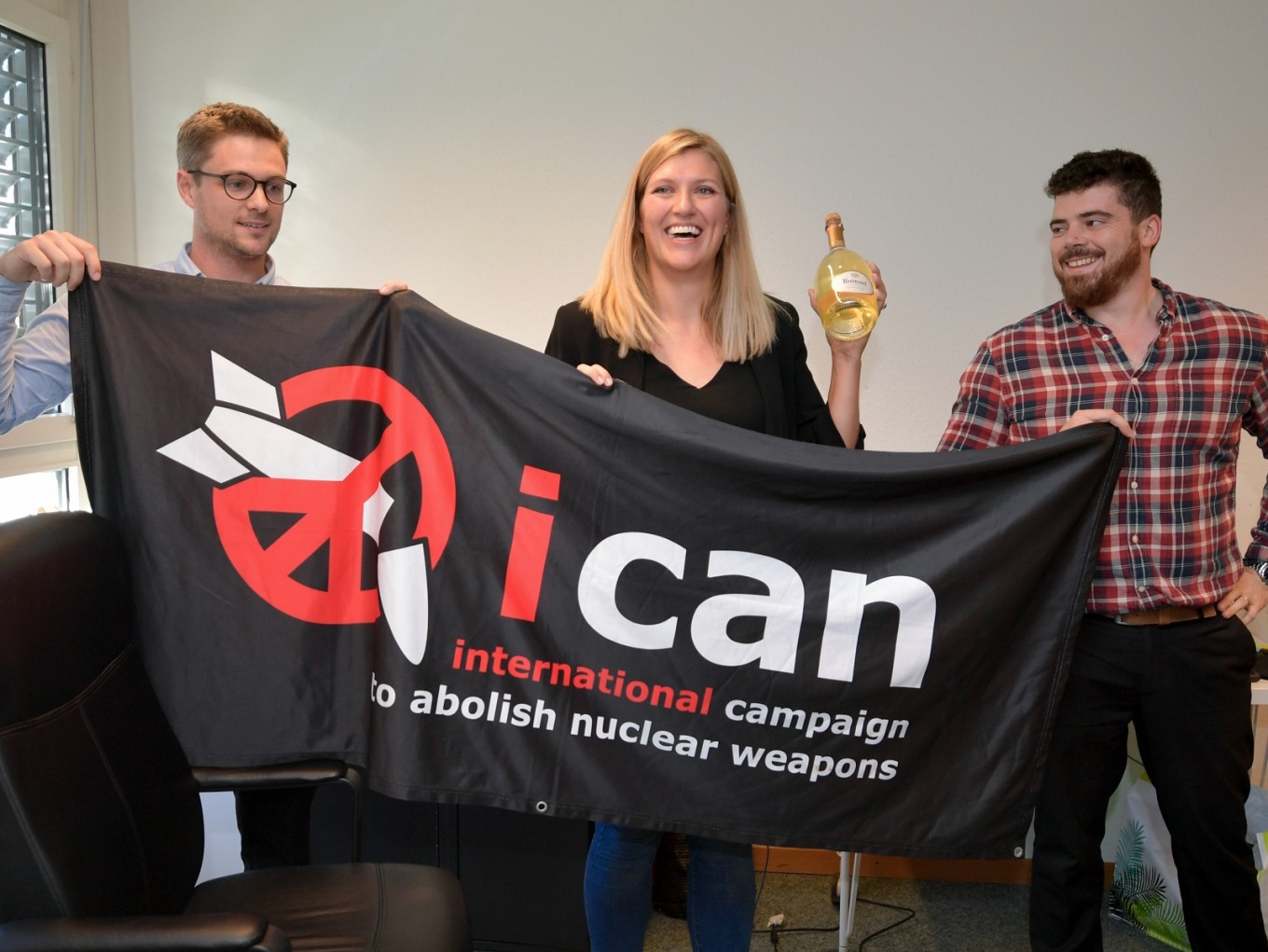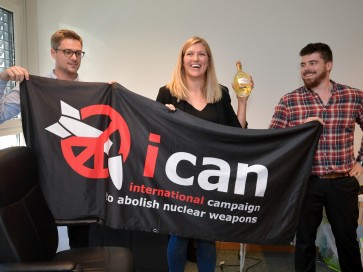Popular Reads
Top Results
Can't find what you're looking for?
View all search resultsPopular Reads
Top Results
Can't find what you're looking for?
View all search resultsThe promising prospect of a nuclear-weapons prohibition treaty
The treaty warrants strong hope for finally providing a legal framework to completely delegitimize nuclear weapons.
Change text size
Gift Premium Articles
to Anyone
 Nuclear disarmament-group ICAN-coordinator Daniel Hogstan, executive director Beatrice Fihn and her husband Will Fihn Ramsay pose with a banner bearing the group's logo after ICAN won the Nobel Peace Prize for its decade-long campaign to rid the world of the atomic bomb as nuclear-fueled crises swirl over North Korea and Iran, on Oct. 6, 2017 in Geneva, Switzerland. (AFP/Fabrice Coffrini)
Nuclear disarmament-group ICAN-coordinator Daniel Hogstan, executive director Beatrice Fihn and her husband Will Fihn Ramsay pose with a banner bearing the group's logo after ICAN won the Nobel Peace Prize for its decade-long campaign to rid the world of the atomic bomb as nuclear-fueled crises swirl over North Korea and Iran, on Oct. 6, 2017 in Geneva, Switzerland. (AFP/Fabrice Coffrini)
R
epresentatives of governments, international organizations and civil-society groups gathered for the first time in Vienna June 21-23 for the first meeting of states party to the Treaty on the Prohibition of Nuclear Weapons (TPNW), following its entry into force in January last year.
Signed in 2017, the treaty has received 86 signatories and 65 ratifications within the last five years, despite the COVID-19 pandemic situation since 2020, with more expected to join on board, including Indonesia. Jakarta has signed the treaty and is about to ratify it.
The Vienna meeting adopted a historical yet ambitious declaration with its action plan, where state parties commit to implement the obligations enshrined in this nuclear-weapon-ban treaty, ranging from providing assistance to victims of nuclear weapon use and testing, to universalizing the treaty.
The treaty arguably becomes the first legally binding instrument that comprehensively prohibits the use, threat of use, development, testing, production, manufacturing, acquisition, possession or stockpiling of nuclear weapons. This treaty also helps mitigate the catastrophic humanitarian consequences of using and testing nuclear weapons, by requiring states parties to assist victims of nuclear testing. The treaty warrants strong hope for finally providing a legal framework to completely delegitimize nuclear weapons.
The TPNW is an interesting instrument from a legal point of view. It is welcomed by the majority of states, but not by nuclear states. With rays of hope after the first meeting of state parties, and challenges from nuclear states, the question now is how prospective is this treaty in the future?
The followings are some personal provoking thoughts.
First, the nine nuclear states and NATO members, particularly the five Security Council permanent members (P5), maintain their opposition to the treaty. From the beginning, they argued, and now continue to argue, that TPNW is not compatible with the Treaty on the Non-Proliferation of Nuclear Weapons (NPT). The former prohibits nuclear weapons while the latter only prohibits their proliferation.

















